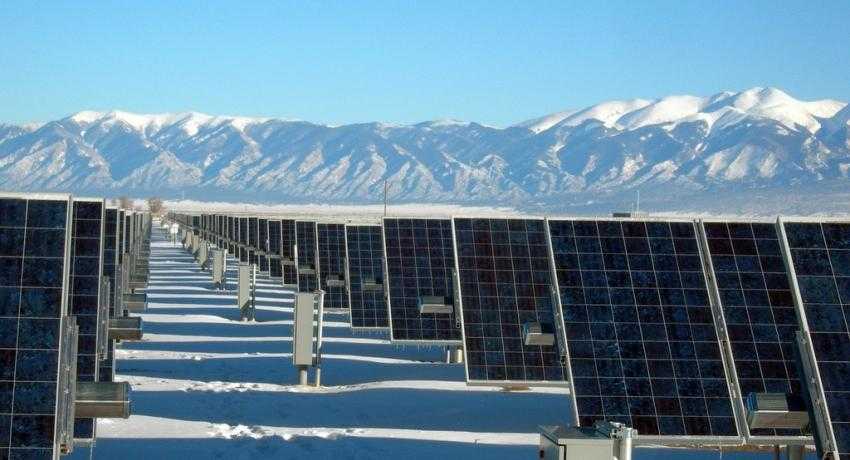Colorado Aims to Go 100% Carbon Free by 2040
Colorado legislators have recently passed 11 bills towards achieving 100% carbon-free electricity in the state by 2040. It is a major step by the Colorado government towards a voluntary reduction of greenhouse gases.
Presently, about half of the state’s electricity is generated from coal which America has plenty of. A report by the Rocky Mountain Institute claims that around 1 million utility customers can save $600 million by 2030 if they switch over to renewable sources of energy.
Renewable energy resources are a cheaper and cleaner alternative. Colorado still generates a major part of its electricity through coal and natural gas which provide energy when it rains or shines. These bills will not only pave the path towards cleaner fuel but will also reduce the cost of energy in times to come.
The process of moving towards carbon-free environment started last year when the Air Quality Control Commission (AQCC) in Colorado adopted low emission standards for the state. This was followed by a unanimous referendum to launch the process of adopting zero emission in vehicular standards across Colorado.
The signed bills target the reduction of 90% emissions to below 2005 levels by 2050, expand the use of electric vehicle, start and boost energy efficiency programs in the state, and provide Xcel Energy’s 100% renewable power supply to the state.
Colorado governor Jared Polis signed seven climate and energy bills and four electric vehicle bills towards the cause. These bills will enforce minimum standards towards a carbon-free Colorado very soon.
The salient features of some of the key bills are described below:
Encouraging Solar Power Generation
The bill aims to codify 100% renewable energy from Xcel by 2050. It directs the Tri-State Generation and Transmission to establish a commission oversight on integrated resource plan. It also asks for a feasibility study towards distributed energy generation such as rooftop generation and its feeding into the grid. In addition, the bill establishes scrutiny methods to measure the coal assets of the state.
Climate Action Plan to Reduce Pollution
The bill initiates the goal of reducing carbon emissions to 90% below 2005 levels by 2040. It also sets the targets of reducing the carbon emissions to 26% by 2025 and 50% by 2030. The bill leaves retail electricity rule formulation to the AQCC and directs it to develop policies and incentive criteria to achieve the above-mentioned targets.
Encouraging community Solar Gardens and their Modernization
The bill increases the community solar power generation cap from 2 MW to 5 MW. It also allows the customers to subscribe to a community solar plant if they are in the same or adjacent county.
Collection of Long-term Climate Change Data
This bill allocates $1,680,600 towards the implementation of its policy which directs the AQCC to collect the carbon emission data from all possible sources and propose a rule by 2020 to control these emissions.
Development of Electric Motor Vehicle based Public Utility Services in the State
This bill requires public utilities to build charging stations for electric vehicles and allows it to recover costs for the same. It paves way for the development of “electric vehicles only” parking spaces and allows a $150 fine for the violation of the norms.
Extending deadline for Innovative Motor Vehicle Income Tax Credits
The bill modifies the present legislation to extend the timeline on electric vehicles tax credit availability to 2025.
Reducing the Impacts of Transportation Changes to the people
The bill directs the Department of Transportation to reduce the economic impact during the transition to electric vehicles with consultation with the stakeholders.
Adopting the Latest Building Energy Codes
The signed legislation requires the cities in Colorado to adopt any one of the three most recent editions of the international energy conservation codes.
Adopting New Appliance Energy and Water Efficiency Standards
The bill encourages the adaptation of the latest standards and for certain products and appliances. It also clarifies the exemption policies of the housing authority in the new energy program for Colorado.
Clean Energy Advocates Welcome the New Legislations
According to most clean energy supporters and activists, the steps planned under these new bills are vital to increase the adoption of renewable energy. The state economy is expected to benefit because the costs of solar and wind energy is likely to keep declining in the foreseeable future.
Renewable energy advocates believe that these bills have set up the state for some strong economic building blocks and created an opportunity to transform Colorado’s power sector in the 21st century. If the people in Colorado want to pay for this – they have the right to do so.




